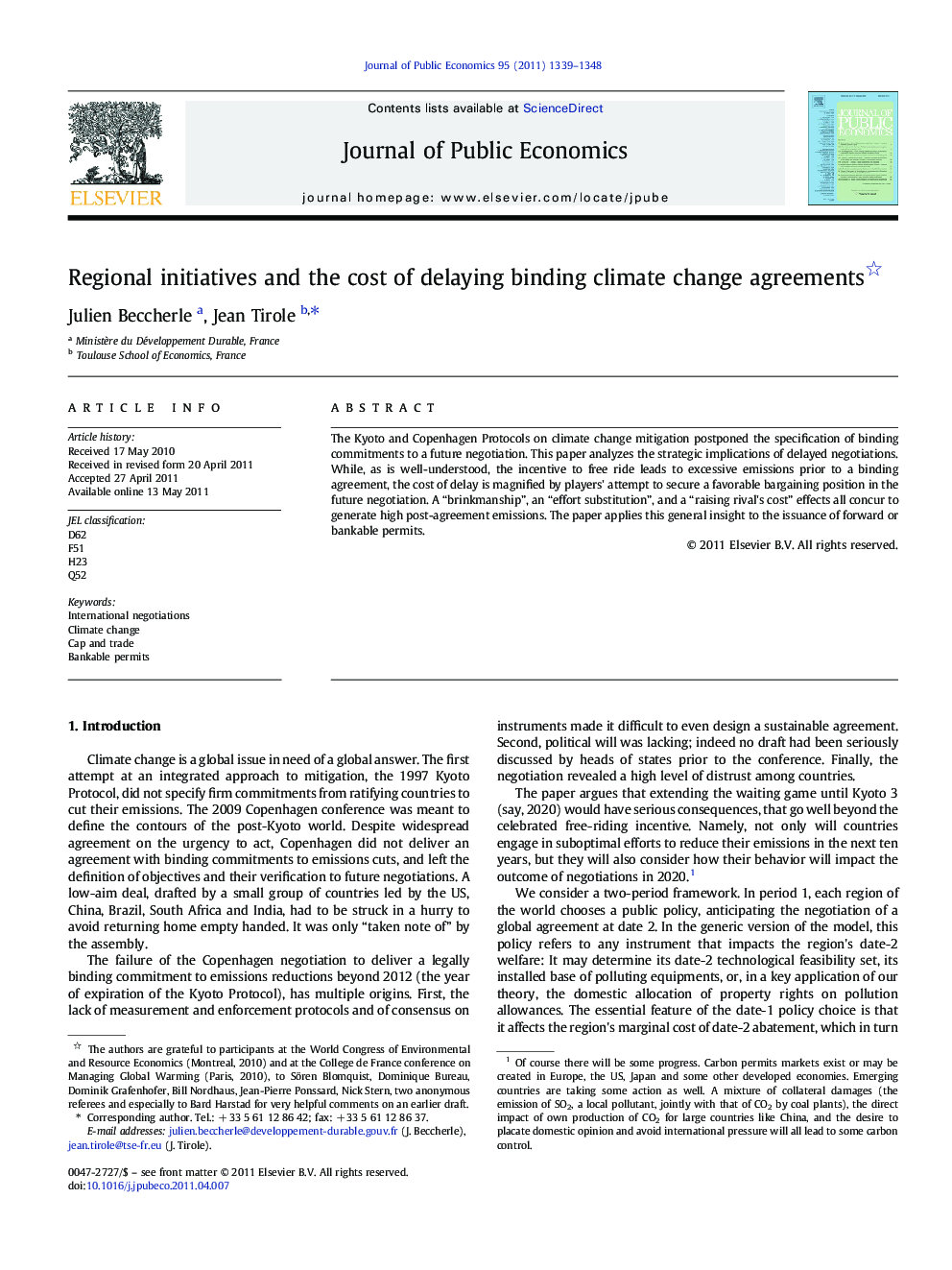| Article ID | Journal | Published Year | Pages | File Type |
|---|---|---|---|---|
| 969024 | Journal of Public Economics | 2011 | 10 Pages |
The Kyoto and Copenhagen Protocols on climate change mitigation postponed the specification of binding commitments to a future negotiation. This paper analyzes the strategic implications of delayed negotiations. While, as is well-understood, the incentive to free ride leads to excessive emissions prior to a binding agreement, the cost of delay is magnified by players' attempt to secure a favorable bargaining position in the future negotiation. A “brinkmanship”, an “effort substitution”, and a “raising rival's cost” effects all concur to generate high post-agreement emissions. The paper applies this general insight to the issuance of forward or bankable permits.
► The Kyoto and Copenhagen Protocols on climate change mitigation postponed the specification of binding commitments to future negotiations. The incentive to free ride will lead to excessive emissions prior to a binding agreement. ► This cost of delay is magnified by countries' incentive to secure concessions in the future negotiation. ► A “brinkmanship”, an “effort substitution”, and a “raising rival's cost” effects all concur to generate high post-agreement emissions. ► These general insights apply to the issuance of forward or bankable permits.
